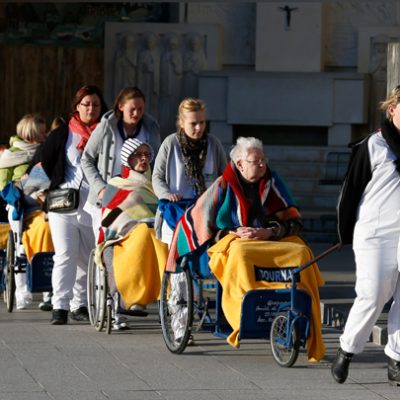
Global life expectancy fell by 1.6 years during the first two years of the COVID-19 pandemic, but Australia was one of the few countries where people were still expected to live longer. Source: SBS News.
A new study published on Tuesday in medical journal The Lancet provides the most comprehensive look at the pandemic’s toll on human health so far.
It found almost every country experienced sharp dips in life expectancy in 2020 and 2021, reversing the long-standing trend of people living longer.
Australia and New Zealand were among only 32 countries and territories, out of 204 studied, to record an increase in life expectancy across the first two years of the pandemic.
“For adults worldwide, the COVID-19 pandemic has had a more profound impact than any event seen in half a century, including conflicts and natural disasters,” the report’s co-first author, University of Washington acting assistant professor Austin E. Schumacher, said.
“Life expectancy declined in 84 per cent of countries and territories during this pandemic, demonstrating the devastating potential impacts of novel pathogens.”
Deakin University epidemiologist, associate professor Hassan Vally, said it confirmed how good Australia’s response was, especially during the first two years of the pandemic, when strict measures were in place including lockdowns to control the spread of COVID-19 before vaccinations were available. These also seemed to control the spread of other diseases such as the flu.
Globally, life expectancy dropped from 73.3 years in 2019 before the pandemic, to 71.7 in 2021.
For women, life expectancy fell from 76 years to 74.8 years. For men, life expectancy dropped from 70.8 years to 69 years.
Australians fared much better than the global average. Their life expectancy was 83.4 years in 2021, up slightly from 83.2 in 2019. Women were expected to live until 85.6 years old, and men until they were 81.2 years old.
FULL STORY
How Australia bucked a global COVID-19 life expectancy trend (By Charis Chang, SBS News)






